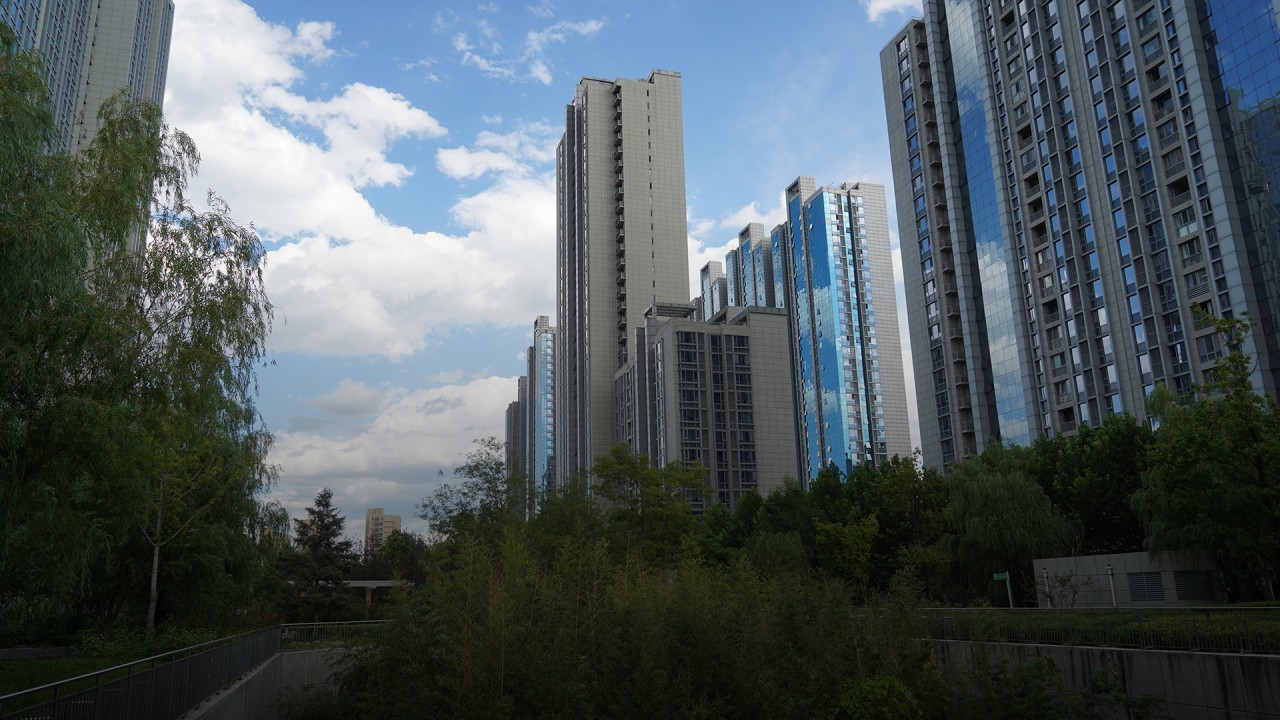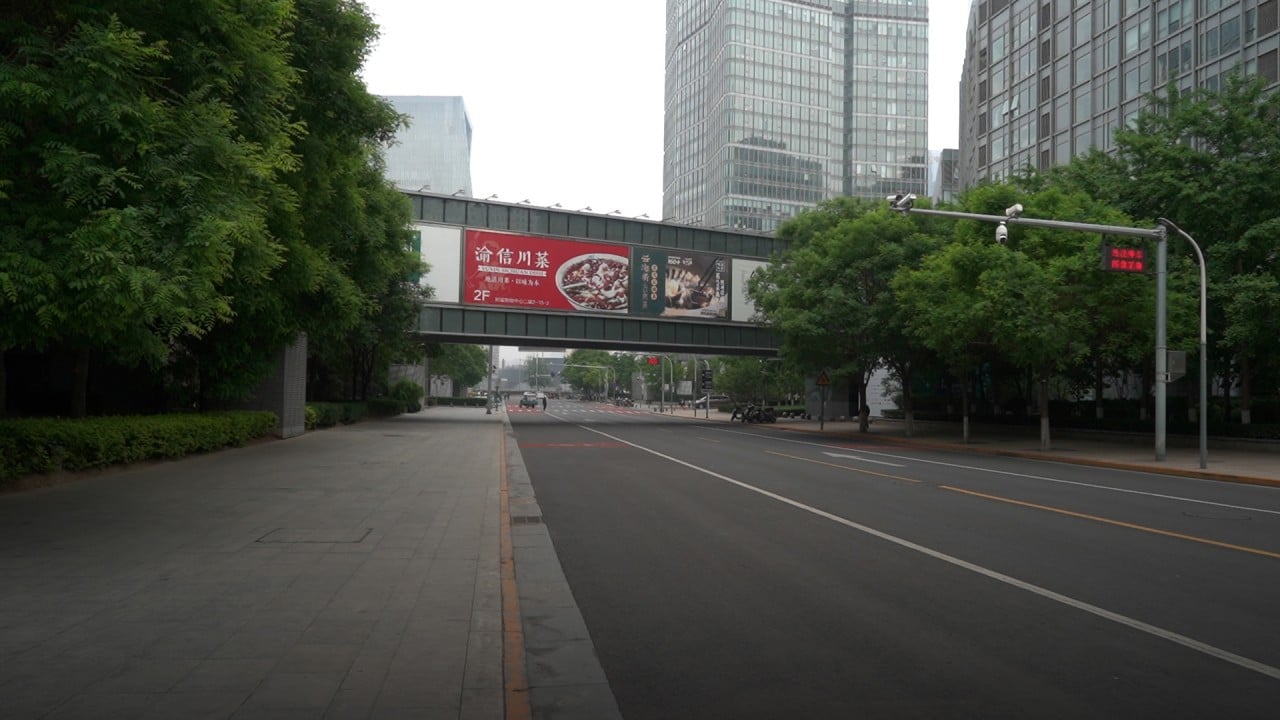
Coronavirus: I’ve endured 20 days of lockdown in Beijing. No one can tell me when it will end
- Some residents in Beijing’s most populous district, Chaoyang, have endured 20 days of lockdown and at least 10 Covid-19 tests since April 25
- Reporter Luna Sun describes the anxiety and desperation of many people who have no idea when or under what circumstances they will be freed
I check my calendar to see what day it is and count how long I have been in lockdown.
It has been 20 days and 11 Covid-19 tests since April 25, when Beijing locked down part of its most populous district, Chaoyang, after a handful of cases were reported.
Unfortunately, the area in question is where I live, a largely residential zone of about five square kilometres in the district’s southwest, with roughly 300,000 residents.
On the day my neighbourhood was locked down, a police car and security guards came after 9pm to barricade the streets. Labelled as a temporary control zone, people were not allowed to enter or leave their homes, except for delivery drivers.
In the beginning, we were optimistic. Despite being near to reported cases, my neighbourhood had never returned a positive result.
Authorities said the temporary lockdown would be lifted if there were no positive cases after two rounds of mass testing on April 25 and 27.
A total of about 7 million tests were done over those two days in Chaoyang, according to local media. The district had 3.45 million permanent residents at the end of last year, which means pretty much everyone completed both tests.
But on April 28, the lockdown was extended for seven days, then seven more, then 10 days again. After a while, keeping track started to feel pointless.
I had just flown back to Beijing the night before the craziness began. I was on a reporting trip in Hainan province and decided to return early as Beijing was seeing a steady rise in new cases and tension was growing.
‘It’s terrifying’: hope dims for China’s travel sector amid latest outbreak
Dreading the possibility of being stranded outside Beijing, unable to even enter an airport, I decided to go home as soon as possible.
If I had known that an indefinite period in lockdown awaited me, I would have chosen to be a nomad. That way, at least I would have had the freedom to leave my flat and keep a better grip on sanity.
Living in lockdown, access to food is not the most pressing concern.
Our cupboards are stocked with bottled water, instant ramen, flour and rice, spam, as well as dozens of chocolate bars and Coca Cola, which Shanghai residents said would help with lockdown depression.
Even though there has been no immediate threat of starvation, I have no idea how long we will be in this situation. So any spare space in the fridge prompted me to order more fresh vegetables to fill the gaps.
Until recently, before the city tightened control measures further, we did not have a problem getting food delivered to the gate.
But on Thursday, as rumours spread the city was going to be brought to a complete standstill for three days, the panic buying began.
Pictures circulating on WeChat showed long queues in front of supermarkets and delivery drivers piloting spectacularly overloaded motorbikes.
At a press conference late on Thursday, authorities tried to dispel the rumours, stressing Beijing had sufficient food supplies and would not terminate delivery services.
WHO chief says China’s zero-Covid policy not ‘sustainable’
However, that night I did not receive the food I got up early in the morning to order, because of the sudden surge in demand, according to the online delivery platform.
Despite the barricades and security guards, we were allowed to walk outside the building in the first week. Grocery stores and pharmacies were still open, but customers were prevented from entering and store staff would take orders at the door.
But without the liberty to leave their neighbourhoods, people resorted to walking, jogging, playing badminton and twirling hula hoops during the day, and square dancing at night. I had never seen our street so packed with pedestrians.

Everyone walked so aimlessly, from one end of our street and back, roughly seven minutes’ walk. But that was all the freedom and outdoor exercise available.
About a week later, even that limited freedom was taken away.
We were ordered not to not leave our homes except for coronavirus tests, as cases kept recurring in the single digits in an area where hundreds of thousands of people live.
My building, as well as many other complexes I have learned about via social media, has not reported a single positive case. While being stuck at home, there is no way we have been in contact with new cases, either.
Yet, we are still under lockdown. We have not been given a concrete metric by which the temporary control zone was decided, let alone when or under what circumstances we will be freed.
I have tried contacting social workers, the Chaoyang district CDC, the local government hotline and even the police. But calls rarely go through. When they do, no one can give me a satisfactory answer.
Even though my neighbours and I have been at home for almost three weeks, we have been ordered to do three more tests on Friday, Saturday and Sunday.
We hope that if no more cases are found, we might be let out in time for the Dragon Boat Festival holiday early next month.



